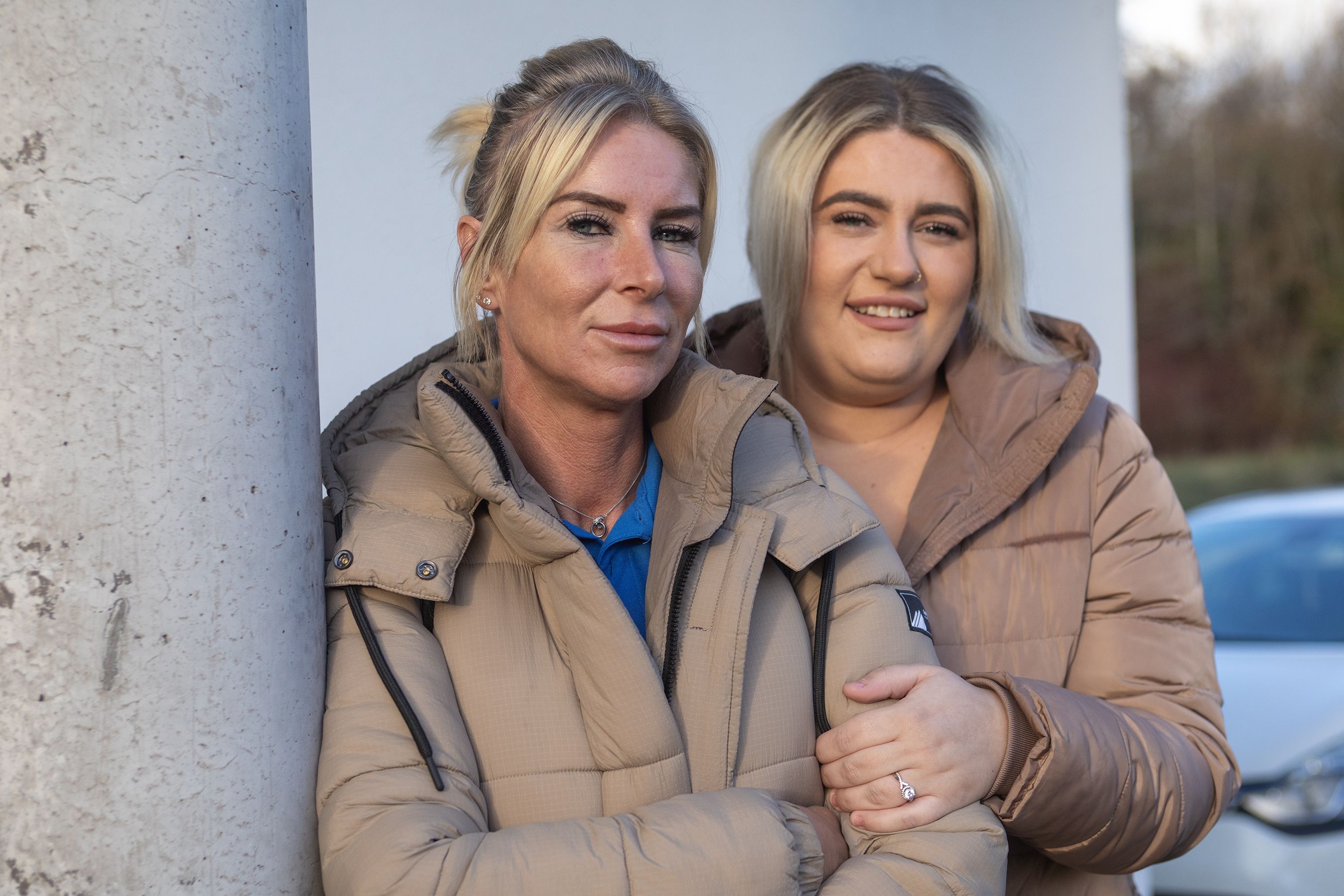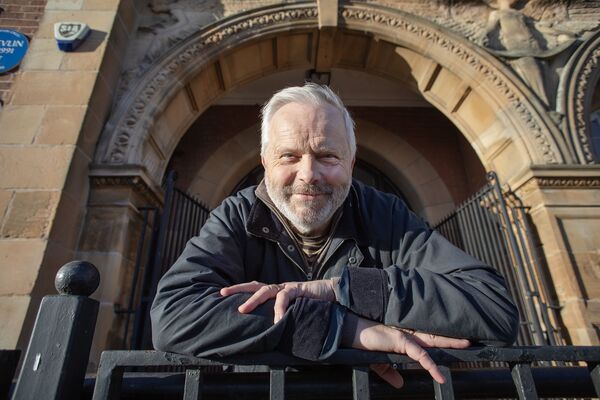TWO years ago this week the staff at Regina Coeli in the Lake Glen area of West Belfast were faced with a dilemma. Their eventual decision to takeover the only women’s hostel in the North of Ireland in the face of imminent closure forced them into the public spotlight over a 12-week period during January-March 2022, with their cause resonating within the wider community and the trade union movement.
Their stance would inspire a play which was staged just months after their protest came to an end and which in November this year was the recipient of the Aisling Arts & Culture Award. It’s a story that continues to inspire and the outworking of which continues to push the issue of safe emergency accommodation for vulnerable women onto the political agenda.
Regina Coeli hostel opened in 1935 providing temporary accommodation to homeless women. The building was owned by the Legion of Mary, with services provided by an independent management team and volunteers operating under the banner of the Regina Coeli House Hostel.
Emma McCann and Caoimhe Kingham were two of the Regina Coeli staff who took part in the takeover of the hostel. Recalling the events of the time, they said that staff were initially told about the closure of the hostel by management in October 2021.
“Whenever they said in October that they were going to close they started paying people off so by the time of the takeover there were only six of us left and I think we had 12 residents and the same was happening with them, they were putting them anywhere,” said Emma. “We had a girl who couldn’t speak any English and they put her in a mixed hostel, and that’s when we started to panic because they were putting these girls everywhere and anywhere and we had a girl who was trafficked and there was a fear within them because they didn’t know where they were going.
“We were told not to tell the girls that we were closing. So straight after the meeting we told them.
Pleased to visit to show my support for the staff & residents of Regina Coeli House - it’s the only women’s homeless hostel in our city which is being closed down. The way they have been treated is shameful. pic.twitter.com/ArfrG3OL9S
— Kate Nicholl (@KateNicholl) January 24, 2022
“There was maybe one or two who could speak a wee bit of English and one of them was the girl who was trafficked. Then four were shipped to East Belfast, so when we eventually did the takeover there was only four girls left. We kept them with us everywhere and everything we heard we made sure that they heard for their own peace of mind.”
Caoimhe said the moment they told the residents that the hostel was closing "they were petrified". "They didn’t want to go so when we said we weren’t going to let it happen, they were completely involved in everything that was going on.”
Emma added: "It was coming up to Christmas and we were going to have no jobs, but then the conversation turned to keeping the place open.”
At the original meeting with the Regina Coeli management, staff were told that the hostel would close the following February. Management insisted that the building needed £500,000 of repairs and it was no longer feasible to keep it open. The idea for the takeover began in the Felons during a meeting with the union Unite. It was the union who raised the issue of the takeover. Staff at the meeting asked what exactly that entailed.
“I said yes straight away,” said Emma. “They told us it was a work-in, you will still be working.”
With an uncertain Christmas behind them, the takeover began in early January. The day the takeover began everybody was anxious and nervous – staff and residents. All remaining staff arrived for work whether they were on the rota or not, members of Unite started gathering. Politicians arrived. Management were completely unaware of what was about to take place. When news began filtering out about what was happening, management arrived and the rest of the day was filled with heated meetings.
“It was a massive day for everybody and emotions were everywhere,” recalled Emma. “It was exhausting.”
But that was only the first of many such days.
Tonight I went to listen to some of the residents & staff of Regina Coeli Women's Hostel. We need MORE places like this, offering a safe, caring home for vulnerable women. This is the ONLY women-only hostel in Belfast. We must not let it close. #KeepWomenSafe https://t.co/WAGQ1kGdA8 pic.twitter.com/PrJmmABEdU
— Charlotte Carson (@charlottecarso1) January 13, 2022
Emma continues: “The union phoned all these food places and big trucks were coming. The union were going to foodbanks and had put letters through businesses’ doors, like the Kennedy Centre and telling them what was happening right on your doorstep and if possible could you maybe give donations. Food was coming from everywhere, Sainsbury’s were giving two hundred pounds worth of gift vouchers. Two fellas from Harland and Wolff came up and it was massive for them to come over to West Belfast and they donated a £600 cheque. People were saying RTÉ are outside, can someone go out and speak to them – it was non-stop.”
Caoimhe added: “The People’s Kitchen would come every day bringing us dinners and there were boxes of readymade foods, and this was given to the residents, the staff and the people who sat out every day supporting us. We’d have been lost without them.”
With the work-in continuing, staff also had their own families to think about.
“Emotions were high for a long time,” said Caoimhe. “We were mentally drained and yes we wanted to do the takeover but I don’t think we realised what we had let ourselves in for – being there all day, we were mentally drained, because you still have your own life outside of work with your kids.
“We sat the residents down and said to them how would you feel if we brought our families in here during the day and they loved it. We didn’t make a move until we spoke to them, everything went past them.
“We took it in shifts to stay over every night, we tried to work out a rota in case the management committee arrived and you were there on your own.”
By February the toll was beginning to take on the staff. Then they were formally sacked two days before they were due to get their redundancy.
“They took us to court to get us out of the building. Two days into the takeover they suspended us and said we had no right to be in the building. But we’re in a work-in so we’re not leaving the building,” said Caoimhe.
Standing with Trade Unions today calling for Minister Deirdre Hargey to intervene and keep open the Regina Coeli Hostel, to save the service and jobs.#reginacoeli pic.twitter.com/BEbQvvwUzg
— Gerry Carroll (@GerryCarrollPBP) March 15, 2022
By March the takeover was coming to an end.
“Susan from Unite said you started this on your terms so let’s end it on your terms even though you might feel that they have won but they won’t really because you are going to call the shots.” recalled Emma. "To be honest we had mixed feelings because most of us wanted to stay and just stick it out and get arrested. There was high tension that day before we went out to say we were going to leave the building. Right up to the end we were still humming and hawing about should we stay.”
“That was the toughest day for me,” said Caoimhe.
“For 12 weeks we had been through the mill,” added Emma.
And the women from Regina Coeli did leave on their own terms. During meetings at Stormont they were promised by the Department for Communities that two new women’s hostels would open that year. To date only one has opened, and much to the criticism of Emma and Caoimhe, it doesn’t take in women in need of emergency accommodation. However, what both women are most proud of, is that the three remaining residents were all rehoused.
“Unite said walk away on your terms, because you have now won two new women’s hostels and you won’t have a court case hanging over you or any hassle coming with it,” said Caoimhe. “We were still not happy that we didn’t win Regina Coeli because that’s what we fought for and to keep women off the streets.”
But that’s not the end of the story. The staff at Regina Coeli would indeed have the last say. Within months they were told that Unite had put money up for a play to be written about their heroic stance and soon they were meeting with Paula McFetridge from Kabosh Theatre Company and playwright Louise Mathews.
A smile comes over both Emma and Caoimhe’s faces recalling the opening night of Not On Our Watch.
“As soon as it started me and Emma recognised ourselves,” said Caoimhe. “Beforehand we wondered, what’s this play going to be like? But see the minute we sat down that first night in the Deer’s Head it was like rewatching yourself in a movie again and credit to Louise it was a really hard thing to do and she pulled it together in just two months.”
Emma and Caoimhe
Emma agreed. “We went to every performance,” she said. “I was blown away.”
Looking back on the service provided by Regina Coeli hostel Emma says: “I miss it so much. It was the best job in the world. You could open those doors right now – Regina Coeli is still there and there are all these women in the town – but also in their homes – who need it. We had young girls in our hostel who were getting ready for school. There are young girls out there who have abusive parents and they’ve nowhere to go. Regina Coeli was a godsend for them.
“We’d be back working there in the morning.”








